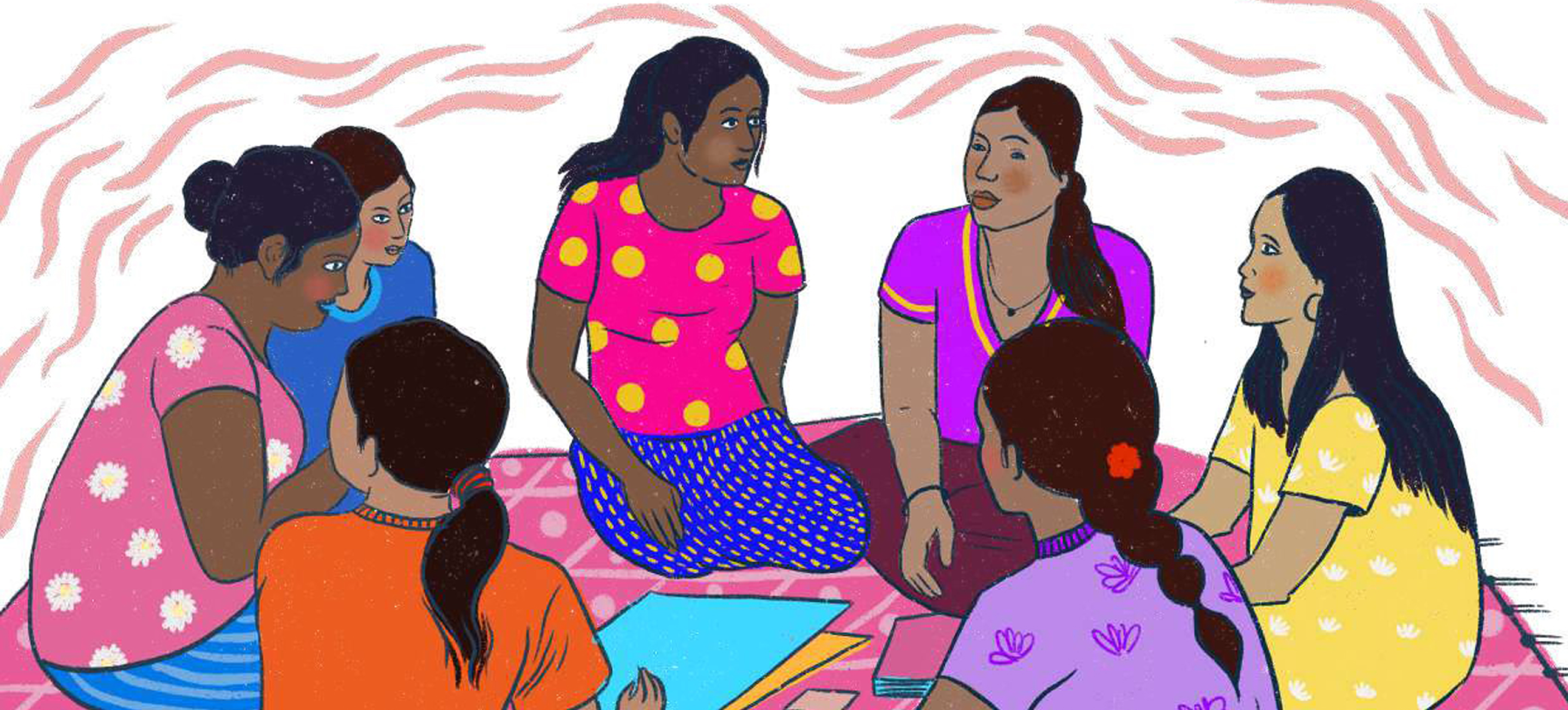An Annual Report that humanises sex work
with APNSW and IWRAW AP

Client
APNSW and IWRAW AP
Relationship
Since 2022
Services
publication Design, Art Direction
Humanise sex work
Designing and illustrating the closing meeting report for the project- ‘Fore fronting our Agendas:Advocacy to protect Sex Workers Rights
Rewriting the narrative around sex work
When you read the words “sex workers” what images pop into your mind? Women hidden in the shadows of a dark alley?
Mainstream media and pop culture has repeatedly portrayed sex workers as disposable symbols of violence who are a threat to society. The visibility and representation of sex workers are either negligible or, in worst cases, harmful narratives that are characterised by prurience, titillation, outrage and disgust. Even when they are occasionally represented with respect—the complex, diverse experiences of sex workers always go unheard. There is an unflinching silence about the exclusion of sex workers’ voices and their freedom to break the gaze.


Our approach was to humanise sex workers.
We choose colours that bring a realistic representation of their interesting lives. What’s interesting about the sex industry is not the sex, but the smart, hard-working and multifaceted people that work in it. Against the backdrop of a culture that tells them they’re worthless, sex workers do a formidable job of juggling work, family and relationships.
To treat ‘sex work’ or ‘commercial sex’ as just as any other job and not the entire identity of the women involved.
The goal of our work is to provide group dialogue through an intersectional representation of sex workers. Many people choose or are forced to take up sex work due to the additional social-cultural and economic discrimination. People who are disproportionately affected by social marginalisation, such as people with disabilities, trans people of colour and undocumented migrants.



The sex industry, for them, provides better financial stability and independence than traditional workplaces and conservative employers who exclude them from opportunities.The voices of these communities often go ignored, only to be replaced by reductive stereotypes.
Hence our work strived to highlight the humaneness of sex workers and acknowledge their individual strengths, skills, visions, and voices. The illustrations were rooted in self-acceptance, self-care, mindfulness, fierceness and love towards their dependents/ families, their stories, their resilience and their joy.



